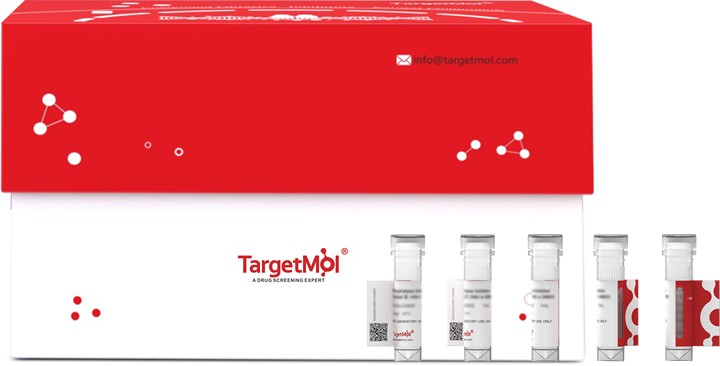购物车
 您的购物车当前为空
您的购物车当前为空
别名 Small inducible cytokine A7, Monocyte chemotactic protein 3, MCP3, MARC, CCL-7, C-C motif chemokine 7
MCP-3/CCL7 Protein, Human, Recombinant (CHO) is expressed in CHO Cells. The accession number is Q7Z7Q8.


为众多的药物研发团队赋能,
让新药发现更简单!
MCP-3/CCL7 Protein, Human, Recombinant (CHO) is expressed in CHO Cells. The accession number is Q7Z7Q8.
| 规格 | 价格 | 库存 | 数量 |
|---|---|---|---|
| 5 μg | ¥ 762 | 6-8日内发货 | |
| 10 μg | ¥ 1,260 | 6-8日内发货 | |
| 20 μg | ¥ 1,580 | 5日内发货 | |
| 50 μg | ¥ 2,160 | 5日内发货 | |
| 100 μg | ¥ 3,560 | 5日内发货 | |
| 200 μg | ¥ 5,890 | 5日内发货 | |
| 500 μg | ¥ 11,500 | 5日内发货 | |
| 1 mg | ¥ 19,300 | 5日内发货 |
| 产品描述 | MCP-3/CCL7 Protein, Human, Recombinant (CHO) is expressed in CHO Cells. The accession number is Q7Z7Q8. |
| 生物活性 | The EC 50 value of human MCP‑3/CCL7 on Ca 2+ mobilization assay in CHO-K1/ Gα15/hCCR1 cells (human Gα15 and human CCR1 stably expressed in CHO-K1 cells) is less than 1.5 μg/ml. |
| 研究背景 | Chemokine (C-C motif) ligand 7 (CCL7) is a small cytokine that was previously called monocyte-specific chemokine 3 (MCP-3). Due to CCL7 possessing two adjacent N-terminal cysteine residues in its mature form, it is classified within the subfamily of chemokines known as CC chemokines. CCL7 specifically attracts monocytes, and regulates macrophage function. It is produced by certain tumor cell lines and by macrophages. This chemokine is located on chromosome 17 in humans, within a large cluster containing many other CC chemokines and is most closely related to CCL2. CCL7 can signal through the CCR1, CCR2 and CCR3 receptors. |
| 种属 | Human |
| 表达系统 | CHO Cells |
| 标签 | Tag Free |
| 蛋白编号 | Q7Z7Q8 |
| 蛋白构建 | Gln34-Leu109 |
| 蛋白纯度 | > 98% as determined by SDS-PAGE |
| 缓冲液 | Lyophilized from a 0.2 μm filtered solution in PBS. |
| 复溶方法 | Reconstitute the lyophilized protein in sterile deionized water. The product concentration should not be less than 100 μg/ml. Before opening, centrifuge the tube to collect powder at the bottom. After adding the reconstitution buffer, avoid vortexing or pipetting for mixing. |
| 别名 | Small inducible cytokine A7, Monocyte chemotactic protein 3, MCP3, MARC, CCL-7, C-C motif chemokine 7 |
| 内毒素 | < 0.2 EU/μg of protein as determined by the LAL method. |
| 分子量 | 10~18 kDa (Reducing conditions) |
| 运输方式 | In general, Lyophilized powders are shipping with blue ice. Solutions are shipping with dry ice. |
| 存储 | Upon receiving, this product remains stable for up to 6 months at lower than -70°C. Upon reconstitution, the product should be stable for up to 1 week at 4°C or up to 3 months at -20°C. For long term storage it is recommended that a carrier protein (example 0.1% BSA) be added. Avoid repeated freeze-thaw cycles. |
对于不同动物的给药剂量换算,您也可以参考 更多